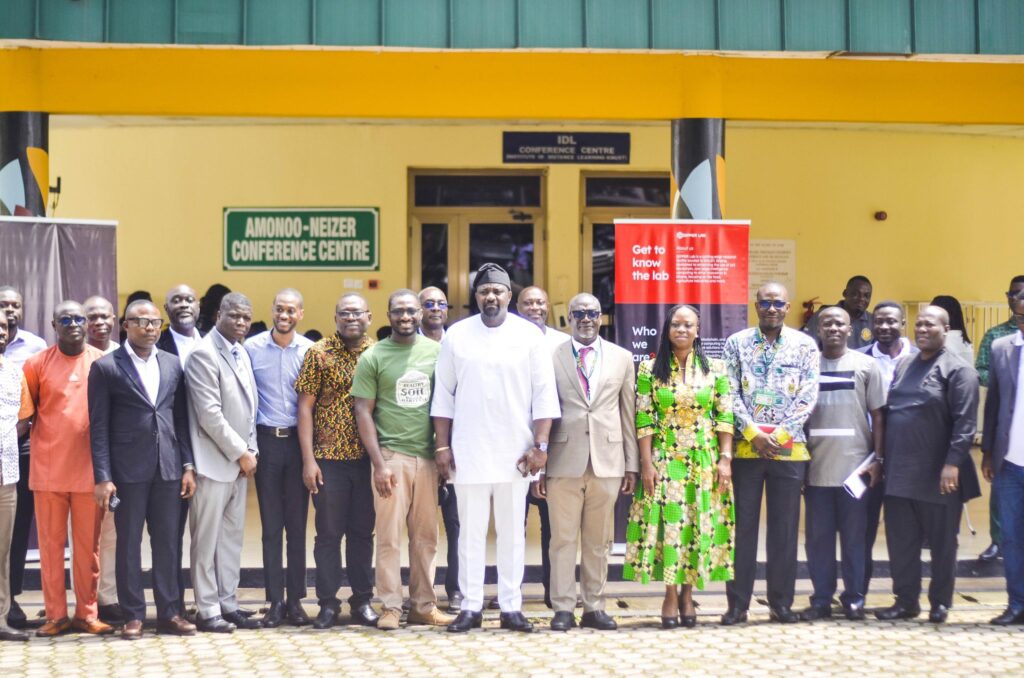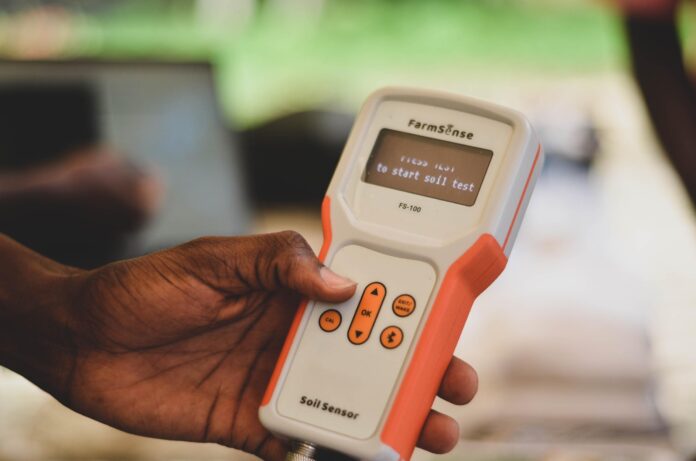A new Artificial Intelligence (AI) powered device has been developed and launched by local engineers to help farmers analyse the soil profile before planting.
Farmers continue to battle low yields owing to poor farming practices and the lack of concise information on the soil conditions of the land they grow on.
FarmSense, a sensing technology, provides instant data on the conditions of soils, including the acidicity levels, nutrient content, moisture and other factors aimed at transforming ways farmers manage soil health, make fertiliser decisions, and increase crop productivity.
Research suggests Ghana’s soil fertility levels are heavily declining owing to poor farming practices, including the over and underutilization of fertilizer applications.

A study by the Soil Research Institute of the Council for Scientific and Industrial Research (CSIR-SRI) reveals most soil conditions in Ghana, especially the Ashanti region, are acidic.
While these local conditions persist, the impacts of climate change are also adversely silencing agricultural productivity with threats of acute shortages of food.
Deputy Minister for Food and Agriculture, John Dumelo highlights the importance of soil testing before cultivation.
“Some farmers procure fertilizers just because they are NPK or they need urea, but they don’t really test the soil to know what component they really need. The ministry is working to ensure farms are tested to make the right for every purpose,” he noted.
FarmSense is a powerful combination of hardware, software and artificial intelligence which provide soil analysis, crop recommendations and nutrient planning — empowering farmers to make data-driven decisions that boost yield and productivity.
CEO of Sesi Technologies, Isaac Sesi emphasized how the device would transform Ghana’s agriculture sector with improve soil health.
“Farmers usually guess what their farms need, which is usually wrong and leads to low yields. This device would tell farmers what they actually need in their soils,” he noted.
Mr. Sesi explained the device is affordable and readily accessible to farmers as they work to produce more of these gadgets to support farmers.
The project is in collaboration with Kwame Nkrumah University of Science and Technology (KNUST), DIPPER Lab, and Manchester Metropolitan University.
The project was funded through the Research and Innovation Systems for Africa (RISA) Fund, supported by UK International Development and Impact Investing Ghana.
Scientific Director at DIPPER Lab, Prof. Eric Tutu Tchao reflected on the lab’s partnership with local innovators to position Ghana and Africa in the global space for
“Our solutions are embedded in our culture – culture relevant innovation – that by these innovations will have real impacts on the society,” he noted.
Acting Administrator of the Ghana National Research Fund, Prof Abigail Opoku Mensah, emphasized the government’s commitment to financing indigenous solutions.
“The government is keen on supporting local research like FarmSense that bring real impacts in our country and transform national and economic growth,” she highlighted.
Source: Emmanuel Bright Quaicoe



